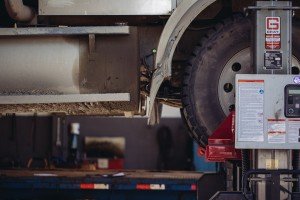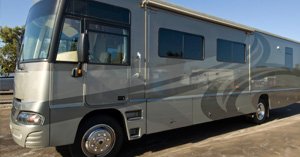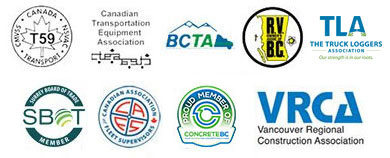Your passenger car or truck becomes an old friend to you after a while (unless yours is a confirmed lemon or a violently moody ’58 Plymouth Fury). In most cases, though, you know your car better than anyone. Observe the behavior of your vehicle, and trust your senses (and your gut) to know what behavior is unusual or just plain wrong for your car.
Your brakes are all that save you from certain death every time you get behind the wheel. Never ignore the telltale sights, sounds and sensations from your brake system that warn of danger ahead.
How to treat your brakes
How do you drive? Do you speed and then slam on the brakes? Ride the brake? Does your teenager borrow your car and drive with the parking brake engaged? Take it easy when you drive; downshift rather than ride the brakes when driving down a prolonged incline; and tell your teenager that the parking brake is designed as a static brake (and that the next time you need brake work, he’s going to help pay for it, too).
In what conditions do you typically drive? If your vehicle has seen its share of average to severe winters, with lots of ice, snow, salt and sand on the roads, your brake components take quite a beating.
STOP! Trust your car’s visual, auditory,
and tactile cues to warn you of trouble ahead
Sights
What color is your brake fluid? The color of your brake fluid should be almost clear with a hint of yellow to it. If your brake fluid has a muddy, sudsy consistency and a dark brown to black blackish color, watch out. Replacing parts like the master cylinder, ABS components, or calipers cost a lot more than a cheap bottle of brake fluid.
How often should brake fluid be flushed? The answer depends on the make and model of your vehicle, what kind of brakes it has, and when it was built.
On average, brake fluid should be flushed about every two years, although it varies depending on manufacturer’s recommendations for your vehicle. Some automakers might say every two years or 20,000 miles, whichever comes first; others, every three years or 30,000 miles.
Anti-Lock Braking Systems (ABS): If your vehicle has ABS, check your owner’s manual before you check your brake fluid. Some vehicle manufacturers tell you to pump your brake pedal X number of times before checking your brake fluid.
Also note that, while checking your brake fluid is important, remember not to expose brake fluid to air or moisture for long or you could cause damage to the brake system. Don’t let your brake fluid reservoir stay open for long when you check the fluid. If you own a vehicle with a plastic fluid reservoir, you can check the brake fluid levels visually without removing the cap.
At what level is your brake fluid? If your brakes don’t seem to perform quite right, check the level of your brake fluid. Make sure the fluid level is within half an inch or so of the cap. If the reservoir is empty, see a qualified mechanic, who may have to bleed the brake system.
As your brake pads wear out, the level of brake fluid will go down. If you have an underlying brake pad problem, topping off your reservoir won’t fix it. So, in addition to your diligence, being on a maintenance schedule with a qualified shop can alleviate the worry of when to replace parts. The shop can check the condition of your brake system each time you get it serviced.
Is your brake light flashing? When does it flash? It’s normal for the red “brake light” to flash when you first start your vehicle or when your parking brake is engaged.
However, if the brake light starts to flash while you’re driving, you’ve lost at least 50% of your braking system. If the light flashes when you step on the brakes, it might be a sign of low brake fluid. Another possibility is a bad master cylinder. You might even have a wiring or electrical problem. Mind your brake light: it’s flashing for a reason.
Is the cabin of your vehicle clean and free of clutter? Take a look on the floor next time you’re in the driver’s seat. Some freakish cases of brake failure have been known to happen when a foreign object gets stuck underneath the brake pedal. Keep your car, especially the area near the driver, clean and free of clutter.
Sounds
Squealing: You’re coming to a stop. You press the brakes and your car makes a drawn-out squealing noise.
This may mean:
Brake dust may have gotten into your brake system: Your brakes may simply need to be cleaned or adjusted.
Your brake wear indicators may be giving you a verbal warning: Wear indicators are built into your brake pads. The purpose of the wear indicators is to emit that squeak sound to prompt you to have your brakes inspected. Do this, and chances are you’ll just need to replace your brakes pads and have your rotors serviced at a minimal cost.
Squeaking: your last brake job may have been sloppy: Sometimes brakes squeak not because you need to replace them, but perhaps you had a poor installation the last time the brakes were put in. When putting in calipers, rotors and so on, several contact points must be lubricated during the install; those components may not have been lubricated properly the first time.
In addition, if the hardware that is meant to hold and support pads and shoes is worn or weak, pads and shoes can move more than they should. These problems are more a nuisance than a danger. The fix: take everything apart and reinstall the brakes properly. Find a shop that does things right the first time.
Clicking: A clicking sound can mean the spring mechanism which holds your brake pad in place may have broken/rusted/come loose. See a qualified mechanic.
Growling and/or Grinding: Consider this your final written warning. You press the brakes and hear a loud growl or grind as you come to a stop. Since you’ve long since ignored the squeal of the wear indicators, you’ve exceeded your pad life. Your pads are now worn all the way though; you are now making metal-on-metal contact with the brake rotors. This noise is much more serious in terms of safety and cost of repair. If you’re hearing this noise, don’t wait: have a trustworthy mechanic inspect your brakes. At this point, chances are you’ll not only replace your brake pads but also your rotors, which will likely have been damaged from metal-on-metal contact.
Pulsating: If you feel a pulsating when braking, your car is not only more difficult to control, but it will take longer to stop; you have both an annoyance and a safety issue. A pulsating can mean an uneven transfer of friction material from the pad to the rotor. Even minor pulsating can compromise the performance of ABS brakes.
Feel/Handling
Pulling to one side: When your car pulls to one side, this could mean frozen brakes, misaligned brakes, or leaking brake fluid.
Increased stopping distance: Does your car need more space to stop these days? You may need a brake adjustment or new linings. You might need a new power brake booster.
Spongy or too-soft brakes: This usually means you have excess air in the brake system. You may need a brake bleed.
Brake pedal has little to no resistance: This could be a simple fix: a thirsty master cylinder which needs fluid added. However, it is possible that your master cylinder or brake lines needs to be fixed/replaced.
Develop a long-term relationship with a mechanic, who is often the next best person to you in reading your vehicle
Regular preventative maintenance is the best policy, of course, but we know that customers often find it a chore to keep on a schedule. Let us put you on a maintenance schedule so you’ll never have to think about it again. With regular maintenance with an honest shop, you’ll how much life is left in your brakes—long before you have a problem.





 Preventative maintenance
Preventative maintenance


